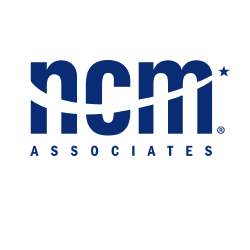A Beginner's Guide to Managing Data

We all have our inadequacies, both as individuals and as businesses. And it’s no coincidence that a business' shortcomings often parallel the shortcomings of the individuals behind it. For instance, a business atmosphere that is too fast paced and rushed is often the result of an impatient dealer or manager. On the flip-side, a carefree and lackadaisical business atmosphere could be the result of an unorganized and un-enthused manager. To the same effect, strengths tend to overlap as well, and we often forget that our personal fortes can make a positive impact in the day-to-day operations of our dealership.
One strength that can always be improved upon in dealerships is Data Management. It is very easy to become intimidated by newer nomenclature, and in the automotive world, “data management” absolutely fits that description. It is new, it is intangible, and it is constantly changing. BUT, the dealerships that are embracing data management, and effectively using it, are reaping the benefits.
So what’s in it for you?
Here are three reasons you can benefit from improved data management:
1. Turning numbers into actionable intelligence:
Properly analyzing and managing relevant information can transition your CFO and team of controllers from the mindset of accountants to that of trusted business advisors. According to a USA Today/Gallup poll, accountants are considered the most trusted business professionals over any other position. If one of your mechanics needs a wrench to perform a specific repair, a hammer in hand would be useless, if not dangerous. Similarly, data is the tool that your accounting team needs to ensure they are performing at maximum efficiency, and without the right kind, things can become extremely difficult. When you combine the right data with a high level of trust, it enables them to move beyond their role as traditional accountants and solidifies their status as trusted advisors.
2. Deepening the understanding of cause and effect:
How do you figure out the meaning behind poor performance or even revenue that seems to suddenly vanish? Knowing where to derive data from and being able to accurately dissect it can literally make the difference between driving profit and losing revenue. Example: Turn wholesales into a profit center by focusing on more than just the number of units sold and whether or not you made money from them. Instead, monitor how those deals impacted BOTH front- and back-end gross. If your actual comp percentage shows different from commission percentage, giving attention to this could explain why. If you pay 25% commission on front-end gross but lose money on the wholesale, you could potentially be paying commission on a deal that is already costing you. If you use the correct data, you can properly analyze each wholesale deal and adjust commission accordingly, which guarantees you aren’t throwing away additional cash.I would recommend that your dealership invest in a data management platform, as I’m willing to bet that your DMS system doesn’t provide data reporting this granular.
3. Knowing what to improve at all times:
The most powerful data available, arguably, is having up-to-date industry trends. You should be monitoring your dealership’s pulse and comparing that with the beat of the industry. Leveraging this method is a great way to provide fast and easy dealership comparisons so you know where you need to improve and where you are maintaining a competitive advantage. Data management is extremely powerful, but knowing what to look for and when to look for it can be overwhelming, so remember to keep it simple! Look at the big picture before diving into the details. As you can see, the question isn’t whether or not data management can be beneficial, but rather how it can benefit you. Hopefully this lays a foundation on where to start.
